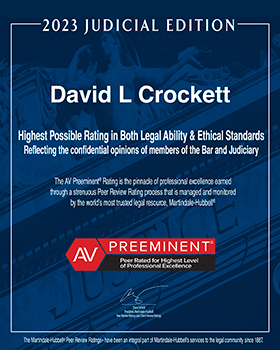Preservation Solutions
Inventorying Probate Assets
INTEGRAL PART OF A PROBATE. Once a probate petition has been filed with the court and a personal representative appointed there are various steps which must be taken before the estate can be distributed to the heirs. In addition to paying the decedent’s debts and taxes, the personal representative needs to determine what assets were owned by the decedent.
MARSHALING AND INVENTORYING ASSETS. According to California probate code §9650 the personal representative has a right to and shall take possession or control of, all the property of the decedent to be administered in a decedent’s estate and shall collect all debts due to the decedent or the estate. “Marshaling” is a technical term which means the process of discovering, taking possession of, identifying, and controlling the decedent’s assets money and possessions an accounts. Marshaling of the assets is probably the most important job of the personal representative.
SPECIAL POWERS GRANTED TO THE PERSONAL REPRESENTATIVE. The law recognizes this and there are numerous probate code sections dealing with this job including special discovery procedures by which third persons who are withholding estate property or have knowledge about estate property can be required to make explanations to the court. Third persons can be required to answer written questions, known as interrogatories, to tell what they know about estate property. Probate code §8871. Also, under probate code §8870, a third person can be required to tell his knowledge about any deed, conveyance, bond, contract, or other writing that contains evidence or that might disclose the decedent’s interest in or claim to property or lost will of the decedent.
EXCEPTIONS TO TAKING OF POSSESSION. The law allows the personal representative some flexibility to avoid disruption of the continuing possession of estate items by heirs of the estate. For example, under probate code § 9650, personal property left with a person such as a son or daughter may be left in their possession until needed or necessary for estate distribution.
TEMPORARY POSSESSION OF FAMILY HOME. Until the actual inventory form is filed with the court, and 60 days thereafter minor children of the decedent and a surviving spouse or registered domestic partner may remain in the family dwelling. Probate code §6500.
ABANDONMENT OF ITEMS. Under probate code §9780, the personal representative is allowed to dispose of or abandon tangible personal property where the cost of collecting and maintaining it would exceed its value. An exception to this would be if a particular item, such as a ring, is mentioned in the decedent’s will, even if it is valueless, it must be maintained in the estate. The law recognizes the practical aspects of estate administration, namely, that is not necessary to itemize every button, spoon, knickknack, etc. which is of no value. However, the personal representative does have to act as a prudent person in and handling these items so it is important to keep the family and heirs advised of any intentions regarding these items.
WHAT TO DO WITH ITEMS NOT OWNED BY THE DECEDENT. It is part of the job of the personal representative to act in good faith including making reasonable efforts to determine who actually owns property and items in the possession of the decedent. Under probate code §9651, the personal representative needs to deliver property to persons actually entitled to it if it is discovered that it was something not owned by the decedent.
TO OBTAIN DECEDENT’S ITEMS IN THE POSSESSION OF OTHERS. If the personal representative determines that there are property or possessions or accounts belonging to the decedent that are in possession of others, a written demand should first be made to turn those items over to the personal representative. Under probate code §9650, if there is a refusal to surrender the item after a request, the personal representative may file a lawsuit to obtain the item in question. Actually it is the legal responsibility for the personal representative to take all steps necessary, including filing a lawsuit, to recover possession of assets belonging to the decedent. Also, if the personal representative declines to take action to recover possession of property belonging to the estate any interested person is entitled to file a petition to the probate court to compel the personal representative to do so.
HOW TO IDENTIFY VARIOUS TYPES OF PROPERTY. Both real property and personal property and accounts have specific laws stating how ownership is determined. For example, the ownership of real estate is generally determined by deeds or other documents recorded with the County recorder in the County where the property is located. Thus, a personal representative can do a search of the County records and/or obtain the assistance of outside parties such as appraisers or title companies ownership of real estate. Savings checking and deposit accounts can typically be identified from account statements in the decedent’s records but if such things are not available the personal representative can contact banking or securities institutions to track down accounts. The banks are securities institutions will require a death certificate and the letters of the personal representative. Attorneys who deal with probate and estate matters may need to be consulted to assist in identifying ownership of properties and accounts.
WHAT TO DO WITH ACCOUNTS IDENTIFIED. The personal representative will need to identify himself/herself to the banks or securities institutions involved in order to obtain signing authority over the accounts. Signing authority is of course necessary in order to write checks and use the decedent’s money to pay bills and taxes. Once the personal representative is the signer on any account, is responsible to safeguard the money and spend it only on payment of the decedent’s liabilities, bills, and taxes. Under no circumstances can the personal representative pay the money out to the heirs of the estate. Heirs cannot be paid until there is a final court order approving the plan of the payment and approving the accounting for the estate funds and assets.
BUSINESS INTERESTS. Business interest such as partnerships, LLCs, and corporations must be identified. If the decedent was a controlling person in any of those types of things which he owned, additional legal paperwork will need to be prepared so that the personal representative can act on behalf of the decedent. These types of situations can become complicated and the personal representative will need to obtain all of the documents pertaining to the business interest and consult with the other owners of the business involved and legal counsel for the business.
TANGIBLE PROPERTY AND VALUABLES. It may be necessary to rent a safe deposit box to maintain jewelry and valuable items because it is the personal representative’s responsibility to make sure these things don’t disappear or get distributed out before court approval.
PENSIONS, IRA’S AND INSURANCE. Pension interests and insurance interests may or may not be part of the decedent’s estate. The personal representative will have to examine the documents involved and contact the institutions involved to find out what the death benefit instructions are. There are often complicated income tax questions involved in these types of interest so it is recommended that legal counsel become involved to advise have to deal with these things.
JOINT TENANCY ASSETS. Assets held in joint tenancy are not part of any probate estate typically because at the moment of death, the ownership passes to the surviving joint tenant. However, there are estate and income tax implications so it may be necessary for the probate estate to have some degree of involvement with this type of property.
COLLECTING DEBTS DUE TO THE ESTATE. In effect, the personal representative stands in the shoes of the decedent and must take steps to collect any money or debts owing to the decedent. Probate code §9650. These steps may include the filing and prosecution of lawsuits. Sometimes it is not easy to determine if there is a debt owing or if the money given to other persons by the decedent was a gift. Again, legal counsel may need to be consulted to determine whether something was a loan or whether it was a gift.
INVENTORY AND APPRAISAL FORM TO BE FILED WITH THE COURT. Probate code section 8800, et seq., contains detailed rules about this form. The probate cannot be closed and the assets cannot be distributed out to the heirs until this form is filed. After the personal representative has marshaled all the assets and determined what there is in the estate, the inventory and appraisal form is filled out and then sent to the probate referee. As part of the appointment of the personal representative, the court also appointed a specific state licensed probate referee to the appraise probate estate assets. Once the probate referee received the form he/she will appraise the value of the real property involved in some other types of things. After the probate referee has completed the appraisal work and signed off on the form the form, it is sent back to the personal representative. The personal representative then files the inventory and appraisal form with the court and that becomes public record. One reason for having a living trust is that the filing of an estate inventory or even identification of estate assets is eliminated as far as the public is concerned. Sometimes after the inventory and appraisal form has been filed with the court, other assets are discovered. If that is the case, a supplemental inventory and appraisal form can be filed.
FILING DEADLINE. According to probate code §8800, the inventory and appraisal must be filed within four months after issuance of the letters to the personal representative. Failure to file by the deadline constitutes grounds to have the personal representative removed. In actual practice in Orange county California most probate estates do not have the inventory and appraisal filed within the deadline. However, the conscientious personal representative and probate attorney will typically try to file something within this deadline knowing that it can be supplemented later.
CONCLUSION. Once the inventory and appraisal has been filed and once all of the debts and taxes have been paid and other procedural requirements satisfied, the personal representative will then file a status report and accounting and petition to distribute the estate. If an estate is not distributed within one year from the date the letters are issued, the personal representative is required to file a status report. If no status report is filed in this situation then interested parties can file a petition with the court to have the personal representative removed and replaced.
Read David Crockett’s Detailed Blog Posts:
Click Here for Posts Regarding PROBATE









